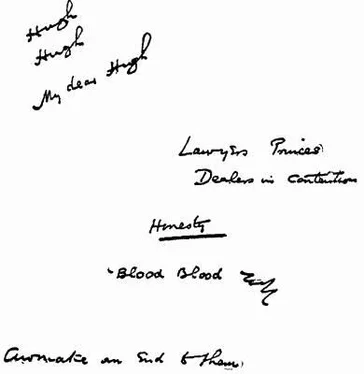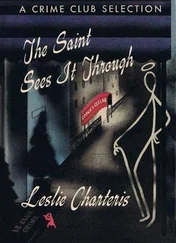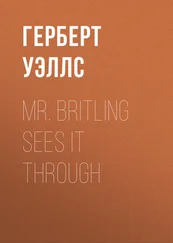Herbert Wells - Mr. Britling Sees It Through
Здесь есть возможность читать онлайн «Herbert Wells - Mr. Britling Sees It Through» весь текст электронной книги совершенно бесплатно (целиком полную версию без сокращений). В некоторых случаях можно слушать аудио, скачать через торрент в формате fb2 и присутствует краткое содержание. Жанр: Классическая проза, на английском языке. Описание произведения, (предисловие) а так же отзывы посетителей доступны на портале библиотеки ЛибКат.
- Название:Mr. Britling Sees It Through
- Автор:
- Жанр:
- Год:неизвестен
- ISBN:нет данных
- Рейтинг книги:4 / 5. Голосов: 1
-
Избранное:Добавить в избранное
- Отзывы:
-
Ваша оценка:
- 80
- 1
- 2
- 3
- 4
- 5
Mr. Britling Sees It Through: краткое содержание, описание и аннотация
Предлагаем к чтению аннотацию, описание, краткое содержание или предисловие (зависит от того, что написал сам автор книги «Mr. Britling Sees It Through»). Если вы не нашли необходимую информацию о книге — напишите в комментариях, мы постараемся отыскать её.
Mr. Britling Sees It Through — читать онлайн бесплатно полную книгу (весь текст) целиком
Ниже представлен текст книги, разбитый по страницам. Система сохранения места последней прочитанной страницы, позволяет с удобством читать онлайн бесплатно книгу «Mr. Britling Sees It Through», без необходимости каждый раз заново искать на чём Вы остановились. Поставьте закладку, и сможете в любой момент перейти на страницу, на которой закончили чтение.
Интервал:
Закладка:
"Exactly," said Mr. Britling as though that was a complete explanation.
"It's been a good year for your roses," said Hugh.
§ 7
Hugh was to stop the night. He spent what seemed to him and every one a long, shy, inexpressive evening. Only the small boys were really natural and animated. They were much impressed and excited by his departure, and wanted to ask a hundred questions about the life in the trenches. Many of them Hugh had to promise to answer when he got there. Then he would see just exactly how things were. Mrs. Britling was motherly and intelligent about his outfit. "Will you want winter things?" she asked....
But when he was alone with his father after every one had gone to bed they found themselves able to talk.
"This sort of thing seems more to us than it would be to a French family," Hugh remarked, standing on the hearthrug.
"Yes," agreed Mr. Britling. "Their minds would be better prepared.... They'd have their appropriate things to say. They have been educated by the tradition of service—and '71."
Then he spoke—almost resentfully.
"The older men ought to go before you boys. Who is to carry on if a lot of you get killed?"
Hugh reflected. "In the stiffest battle that ever can be the odds are against getting killed," he said.
"I suppose they are."
"One in three or four in the very hottest corners."
Mr. Britling expressed no satisfaction.
"Every one is going through something of this sort."
"All the decent people, at any rate," said Mr. Britling....
"It will be an extraordinary experience. Somehow it seems out of proportion—"
"With what?"
"With life generally. As one has known it."
"It isn't in proportion," Mr. Britling admitted.
"Incommensurables," said Hugh.
He considered his phrasing. "It's not," he said, "as though one was going into another part of the same world, or turning up another side of the world one was used to. It is just as if one had been living in a room and one had been asked to step outside.... It makes me think of a queer little thing that happened when I was in London last winter. I got into Queer Company. I don't think I told you. I went to have supper with some students in Chelsea. I hadn't been to the place before, but they seemed all right—just people like me—and everybody. And after supper they took me on to some people they didn't know very well; people who had to do with some School of Dramatic Art. There were two or three young actresses there and a singer and people of that sort, sitting about smoking cigarettes, and we began talking plays and books and picture shows and all that stuff; and suddenly there was a knocking at the door and some one went out and found a policeman with a warrant on the landing. They took off our host's son.... It had to do with a murder...."
Hugh paused. "It was the Bedford Mansions mystery. I don't suppose you remember about it or read about it at the time. He'd killed a man.... It doesn't matter about the particulars anyhow, but what I mean is the effect. The effect of a comfortable well-lit orderly room and the sense of harmless people—and then the door opening and the policeman and the cold draught flowing in. Murder! A girl who seemed to know the people well explained to me in whispers what was happening. It was like the opening of a trap-door going down into some pit you have always known was there, but never really believed in."
"I know," said Mr. Britling. "I know."
"That's just how I feel about this war business. There's no real death over here. It's laid out and boxed up. And accidents are all padded about. If one got a toss from a horse here, you'd be in bed and comfortable in no time.... And there; it's like another planet. It's outside.... I'm going outside.... Instead of there being no death anywhere, it is death everywhere, outside there. We shall be using our utmost wits to kill each other. A kind of reverse to this world."
Mr. Britling nodded.
"I've never seen a dead body yet. In Dower-House land there aren't dead bodies."
"We've kept things from you—horrid things of that sort."
"I'm not complaining," said Hugh.... "But—Master Hugh—the Master Hugh you kept things from—will never come back."
He went on quickly as his father raised distressed eyes to him. "I mean that anyhow this Hugh will never come back. Another one may. But I shall have been outside, and it will all be different...."
He paused. Never had Mr. Britling been so little disposed to take up the discourse.
"Like a man," he said, seeking an image and doing no more than imitate his son's; "who goes out of a busy lighted room through a trap-door into a blizzard, to mend the roof...."
For some moments neither father nor son said anything more. They had a queer sense of insurmountable insufficiency. Neither was saying what he had wanted to say to the other, but it was not clear to them now what they had to say to one another....
"It's wonderful," said Mr. Britling.
Hugh could only manage: "The world has turned right over...."
"The job has to be done," said Mr. Britling.
"The job has to be done," said Hugh.
The pause lengthened.
"You'll be getting up early to-morrow," said Mr. Britling....
§ 8
When Mr. Britling was alone in his own room all the thoughts and feelings that had been held up downstairs began to run more and more rapidly and abundantly through his mind.
He had a feeling—every now and again in the last few years he had had the same feeling—as though he was only just beginning to discover Hugh. This perpetual rediscovery of one's children is the experience of every observant parent. He had always considered Hugh as a youth, and now a man stood over him and talked, as one man to another. And this man, this very new man, mint new and clean and clear, filled Mr. Britling with surprise and admiration.
It was as if he perceived the beauty of youth for the first time in Hugh's slender, well balanced, khaki-clad body. There was infinite delicacy in his clear complexion, his clear eyes; the delicately pencilled eyebrow that was so exactly like his mother's. And this thing of brightness and bravery talked as gravely and as wisely as any weather-worn, shop-soiled, old fellow....
The boy was wise.
Hugh thought for himself; he thought round and through his position, not egotistically but with a quality of responsibility. He wasn't just hero-worshipping and imitating, just spinning some self-centred romance. If he was a fair sample of his generation then it was a better generation than Mr. Britling's had been....
At that Mr. Britling's mind went off at a tangent to the grievance of the rejected volunteer. It was acutely shameful to him that all these fine lads should be going off to death and wounds while the men of forty and over lay snug at home. How stupid it was to fix things like that! Here were the fathers, who had done their work, shot their bolts, returned some value for the costs of their education, unable to get training, unable to be of any service, shamefully safe, doing April fool work as special constables; while their young innocents, untried, all their gathering possibilities of service unbroached, went down into the deadly trenches.... The war would leave the world a world of cripples and old men and children....
He felt himself as a cowardly brute, fat, wheezy, out of training, sheltering behind this dear one branch of Mary's life.
He writhed with impotent humiliation....
How stupidly the world is managed.
He began to fret and rage. He could not lie in peace in his bed; he got up and prowled about his room, blundering against chairs and tables in the darkness.... We were too stupid to do the most obvious things; we were sending all these boys into hardship and pitiless danger; we were sending them ill-equipped, insufficiently supported, we were sending our children through the fires to Moloch, because essentially we English were a world of indolent, pampered, sham good-humoured, old and middle-aged men. (So he distributed the intolerable load of self-accusation.) Why was he doing nothing to change things, to get them better? What was the good of an assumed modesty, an effort at tolerance for and confidence in these boozy old lawyers, these ranting platform men, these stiff-witted officers and hide-bound officials? They were butchering the youth of England. Old men sat out of danger contriving death for the lads in the trenches. That was the reality of the thing. "My son!" he cried sharply in the darkness. His sense of our national deficiencies became tormentingly, fantastically acute. It was as if all his cherished delusions had fallen from the scheme of things.... What was the good of making believe that up there they were planning some great counter-stroke that would end in victory? It was as plain as daylight that they had neither the power of imagination nor the collective intelligence even to conceive of a counter-stroke. Any dull mass may resist, but only imagination can strike. Imagination! To the end we should not strike. We might strike through the air. We might strike across the sea. We might strike hard at Gallipoli instead of dribbling inadequate armies thither as our fathers dribbled men at the Redan.... But the old men would sit at their tables, replete and sleepy, and shake their cunning old heads. The press would chatter and make odd ambiguous sounds like a shipload of monkeys in a storm. The political harridans would get the wrong men appointed, would attack every possible leader with scandal and abuse and falsehood....
Читать дальшеИнтервал:
Закладка:
Похожие книги на «Mr. Britling Sees It Through»
Представляем Вашему вниманию похожие книги на «Mr. Britling Sees It Through» списком для выбора. Мы отобрали схожую по названию и смыслу литературу в надежде предоставить читателям больше вариантов отыскать новые, интересные, ещё непрочитанные произведения.
Обсуждение, отзывы о книге «Mr. Britling Sees It Through» и просто собственные мнения читателей. Оставьте ваши комментарии, напишите, что Вы думаете о произведении, его смысле или главных героях. Укажите что конкретно понравилось, а что нет, и почему Вы так считаете.






